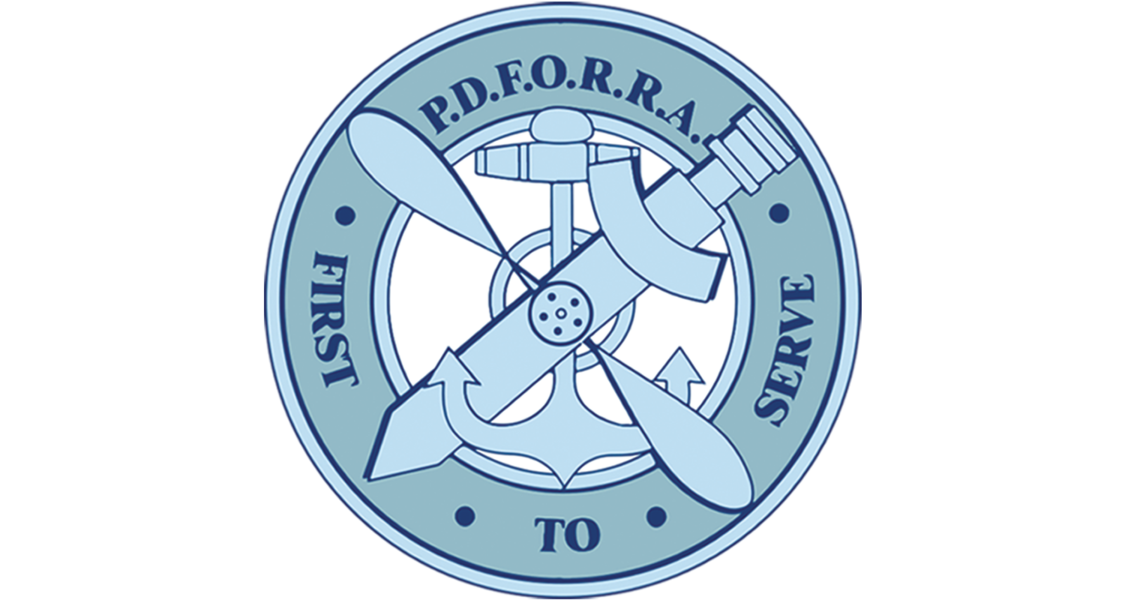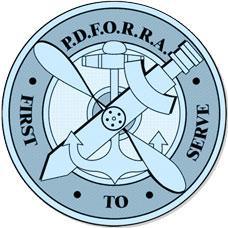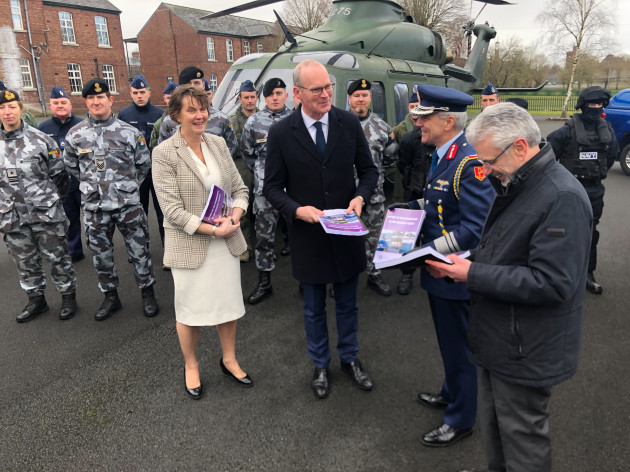A MAJOR REPORT on the future of the Defence Forces has been published this afternoon with recommendations on the military’s structures, equipment and personnel.
Its key recommendations would change military hierarchy, create a larger navy and introduce more aircraft.
Additionally, it says there should be more cyber security specialists and makes significant recommendations on pay.
Minister for Defence Simon Coveney brought the report to Cabinet yesterday after it was written by the Commission on the Defence Forces.
In a statement, Coveney said the report proposes “significant changes for the Defence Forces and Defence provision in Ireland”.

“The report poses serious questions that we as a society must carefully consider,” Coveney said.
“This includes the type of defence capabilities that we should retain and the level of resourcing that we are willing to commit to equip and train our Defence Forces for the roles that we require them to undertake,” he said.
“I hope that this report will foster real debate about the defence that we need as a modern European country.”
Here are the main takeaways from the report:
Pay
The report recommends that greater transparency “of the wider benefits of membership of the Defence Forces should become a central feature of future recruitment campaigns, which should be supported by external expertise”.
Equity of existing pay and allowance structures should be enhanced in several ways:
- removing the requirement for a 3 Star Private/Able Seaman to ‘mark time’ for the first three years at that rank
- ensuring that all personnel of Private 3 Star/Able Seaman rank are paid the full rate of MSA applicable to the rank
- providing immediate access to the Sea‐going Service Commitment Scheme to direct entry personnel in the Navy
- replacing the existing sea‐going allowances with less complex sea‐going duty measures
- and introducing Long Service Increments to the pay scales of all ranks of enlisted personnel.
It advises introducing a mechanism for ongoing review of how existing specialist pay rates and allowances are applied to groups and categories of military personnel.
That would also allow for making recommendations, within public pay policy parameters, where adjustments are required.
“On the basis that all personnel should, in the first instance, be paid the full rate of MSA [Military Service Allowance] applicable to their rank, MSA should be abolished and the full applicable rate integrated into core pay,” the report says.
The Permanent Defence Force (PDF) Representative Associations should be facilitated if it wishes to pursue associate membership of the Irish Congress of Trade Unions.
The Defence Forces should “urgently develop revamped and efficient recruitment processes” for reserve forces.
Employment protection legislation should be considered and discussed with employer representative bodies and trade unions to protect reserve members.
Funding
The report calls Ireland’s defence funding an “outlier” compared to other countries in western and northern Europe.
It estimates the budget needs an annual increase of 50% to bring it up to €1,500 million per year – or, to reach an even higher standard, up to €3,000 million.
“The Commission acknowledges the great challenge faced in managing the public finances in the wake of the financial crash and more recently the impact of the Covid‐19 pandemic,” it says.
“It recognises that budgetary policy must be framed within a prudent macro‐economic framework and in the light of many competing demands.
It is clear to the Commission that the current level of financial commitment delivers military capabilities which are inadequate for the Defence of Ireland and its people from the threats identified in this report.
Staying at the current level of funding will “severely constrain” the Defence Forces’ capacity to maintain its overseas commitments.
Maritime
The Commission identified two major threats in the maritime domain – potential interruptions to sea lanes or strategic ports, and to the subsurface communications cables that run between North America and Europe near the Irish coast.
It recommends several measures to enhance the Defence Forces’ ability to protect Ireland’s ports and access to them, as well as to detect and deter interference with cables.
There should be a significantly increased Navy with a doubling of the Navy Reserve, including new reserve units in Galway, the north west and north east.
It advises an increased naval presence in Ireland’s territorial waters and the Exclusive Economic Zone and at least two naval vessels capable of detecting and clearing mines and maritime improvised explosive devices.
Air Corps rebrand
The Air Corps should be rebranded as an Air Force and new aircraft should be purchased including ones capable of transporting troops.
More helicopters should also be purchased for an Irish military air ambulance service, the report recommends.
It recommends that primary radar should be developed immediately to enable detection of all aircraft in Irish air space.
The Defence Forces should have modern counter drone systems and air defence systems to protect Irish troops overseas and strategic locations at home during emergencies.
Consideration should be given to developing an air policing capability that would respond to threats in Irish air space and protect civilian air traffic.
Protection of troops
The report expects a “more demanding peacekeeping environment” in the future due to various threats.
Those include “erosion of global norms, proliferation of weapons and EDTs to non‐state actors and networks, technology transfer between terrorist networks (e.g. drones and improvised explosive devices) and opportunistic collaboration between terrorist groups and criminal networks will combine to present tougher environments”.
The Defence Forces needs new modern armoured personnel carrier fleet for the army to enhance protection, the report says.
It needs to strengthen military intelligence and cyber capabilities to counter espionage and hybrid threats, both in Ireland and to support peacekeepers abroad.
It should have greater air lift by procuring at least one transport aircraft and the developing pooling and sharing arrangements with European air lift initiatives.
Climate change
The report identifies that climate change will be a “driver of conflicts due to environmental degradation and resource scarcity”.
It says climate change will impact on Defence Forces’ operational environment and that future personnel must be trained and equipped to operate under more extreme climate and weather conditions.
“The role of the Air Corps in dealing with wildland fires and of the Army in assisting flood victims in recent years is also important, and will almost certainly become much more so in the coming years as we deal with the already predictable consequences of climate change,” the report says.
It is likely that the Defence Forces will need to increase their awareness of the impact of climate change on security, as well as developing adaptation and mitigation measures.
“However, as military forces evolve to implement green technologies,such progression cannot result in military capabilities being degraded,” it says.



